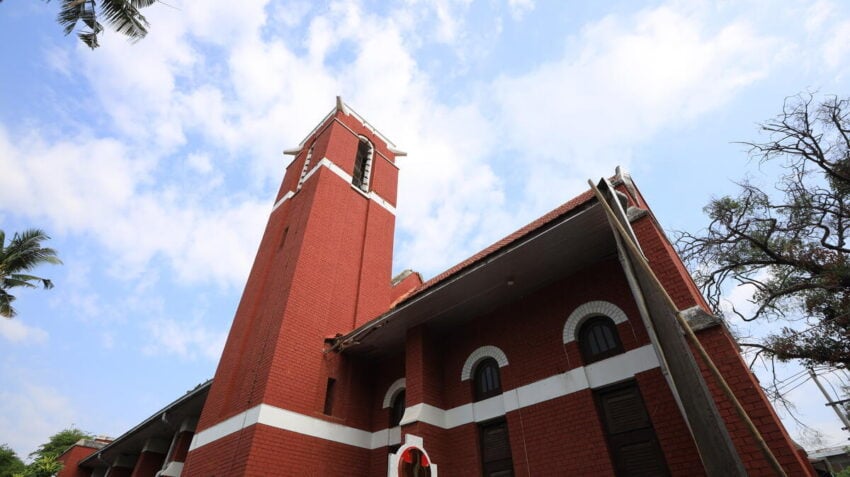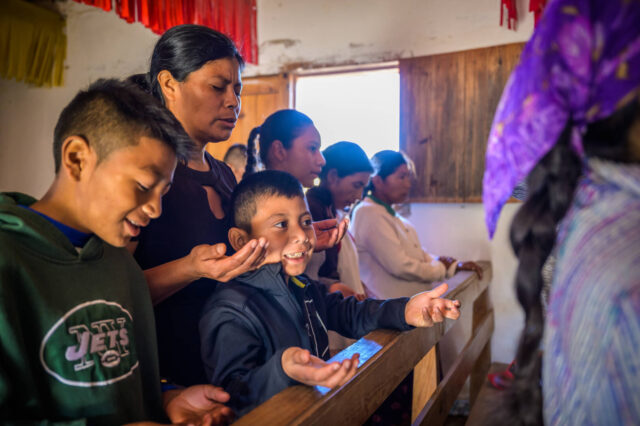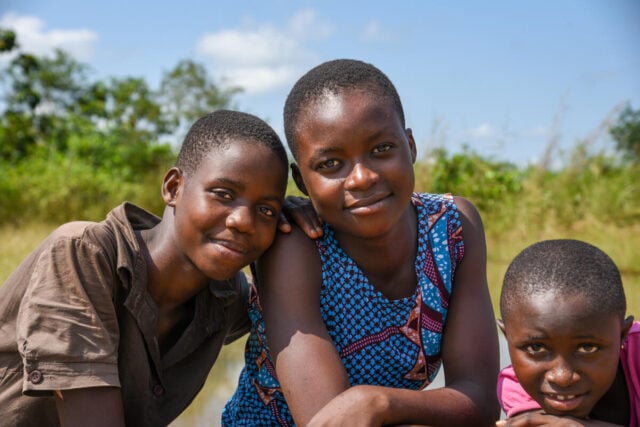Poverty is a social sickness that we can’t seem to cure. Even Jesus said, “The poor you will always have with you” (Matthew 26:11, NIV). We wonder, if the poor will always be with us, what’s the point in addressing poverty at all?
Poverty is both as ancient as pharaohs and as modern as smartphones. No matter any shift in politics, economics, or philosophy, poverty remains. Its very persistence can lull us into complacency. We can easily choose inaction from a deep sense of helplessness.
But if we could do something to address the issue of injustice in the world, would we? And why would we?
Bob Pierce, founder of World Vision, once said, “Don’t fail to do something just because you can’t do everything.” Many followers of Jesus have dedicated their lives to eradicating poverty. But for many of us, it can often be a little too easy to stay comfortable in our church communities — praying for the world’s needs but failing to follow prayer with action.
We may feel confident in our understanding of the gospel of Christ. We believe Jesus was born, lived, died, and was resurrected to reconcile us to God and bring us new life. While these truths are central to our faith, when we look to the teachings of Jesus, we may encounter a question: Does our response to poverty point to a missing component in our understanding of the gospel?
Rich Stearns, World Vision president emeritus, addresses this piercing question in his book, The Hole in Our Gospel. His premise is that if we claim to follow Jesus — the One who fed the hungry, healed the broken, and called the poor “blessed” — but ignore the suffering of His people, then we’re preaching an incomplete gospel.
But let us address the elephant in the room. There is no need to pack your bags for a guilt trip. Nor is there a reason to beat ourselves up. Rather, this is a call to arms — compassionate, Jesus-filled arms — that are ready to do the gritty, holy work of justice. It’s about waking up as the Church and doing good, hard, and healing work. Because poverty is not just a social issue — it’s a gospel issue.
The Church has the power to respond to extreme poverty. Even more, how our congregations respond to the call of the gospel can rewrite the course of history.
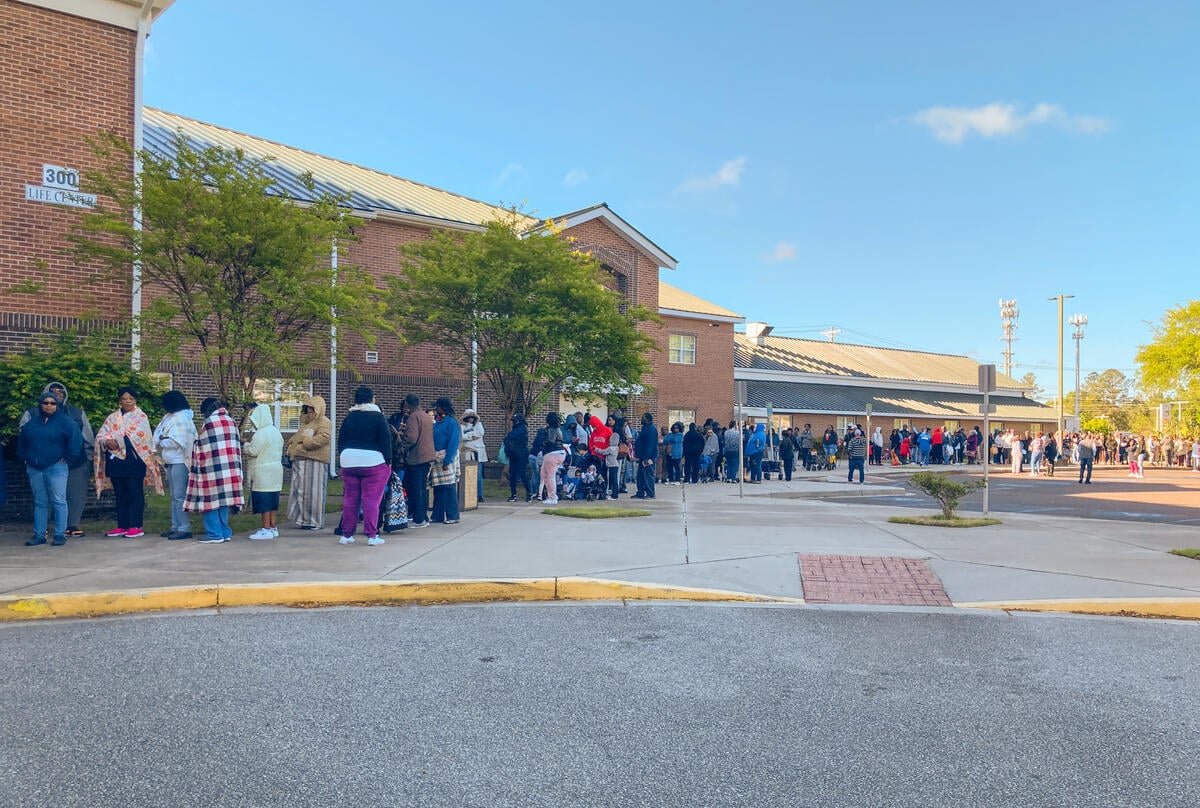
How does poverty happen?
People often misunderstand poverty. In his book, Stearns writes, “Each of us brings different associations to the word poverty based on our past understandings and misunderstandings.” It’s tempting to reduce poverty to a simple economic issue — a lack of money, food, housing, or access to clean water. And while these are real and urgent needs, they only scratch the surface. Poverty is not just about empty wallets or bare cupboards. It’s about something deeper: a rupture in how things were meant to be. Poverty is the hum of brokenness under the noise of the world.
Many people mistakenly assign fault as well, beyond confusing what poverty is. Some believe poverty is caused by laziness, irresponsibility, or a failure to work hard enough. Others believe it’s solved with a job, a budget, or a new policy. These assumptions are clean, simple — and erroneous. They ignore the complexities of trauma, war, injustice, displacement, generational loss, and spiritual trauma or confusion. They miss the fact that a person can work three jobs and still not afford to live. They treat poverty like a math equation, assuming it has a simple, one-step solution. But Stearns tells us:
“Poverty is extremely complex. Picture the poor caught in a spiderweb of interwoven causes that trap them hopelessly while the marauding spiders of hunger, war, disease, ignorance, injustice, natural disasters, and exploitation prey upon them unrestrained.”
What about extreme poverty?
Extreme poverty is the most severe form of poverty, involving the acute deprivation of basic human needs. The technical definition of extreme poverty is living on less than $3.00 per person per day. According to the latest data, about 8.5% of people globally are estimated to be living in extreme poverty. That’s nearly 700 million people.
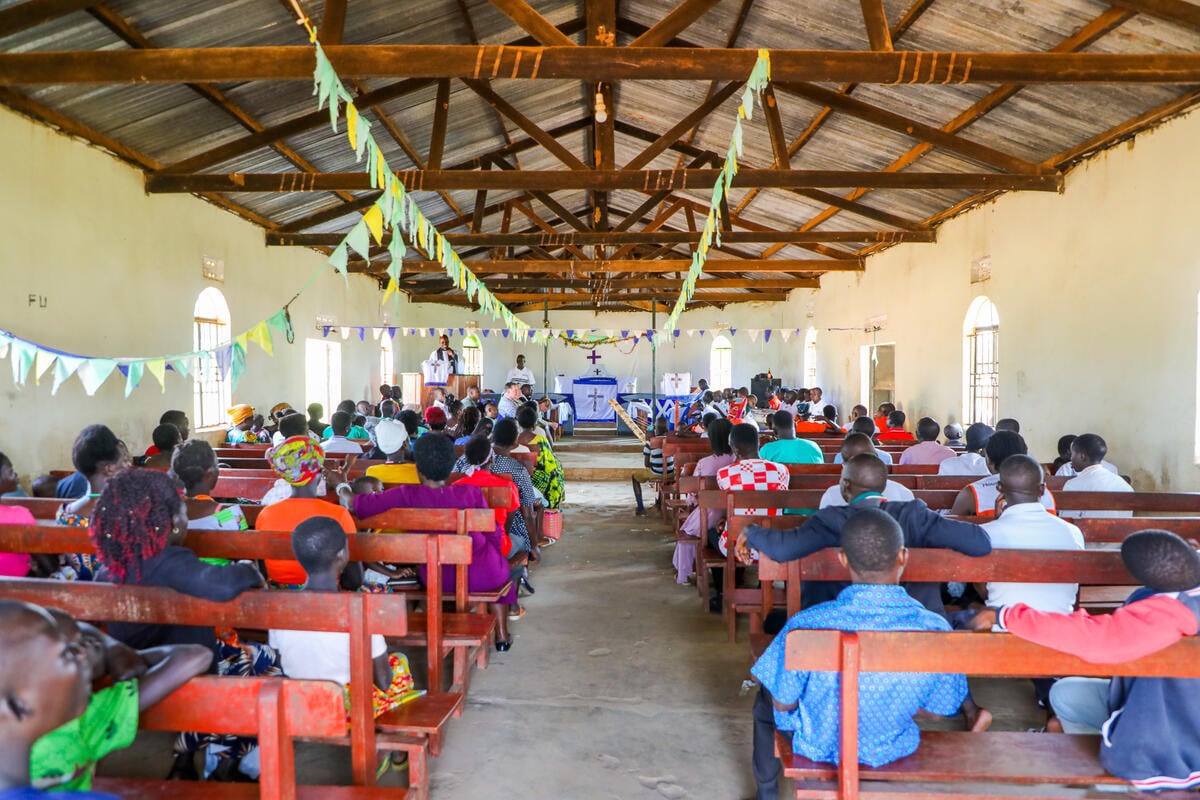
How does the Church view poverty?
Poverty reflects the world’s brokenness. From a Christian perspective, it can be seen as an extended consequence of sin — reflecting broken relationships between humans and God, humans and one another, and humans and creation. When Adam and Eve turned from God, their relationships with Him, with one another, with the land, and even with themselves were torn. Poverty is the lingering aftershock of that tearing. It shows up in hunger and homelessness, yes — but also in loneliness, powerlessness, and hopelessness. It is not just the absence of material things; it is the absence of shalom — God’s wholeness, His peace, His intended design.
The good news is that God did not stay distant from this pain. Jesus entered it. He was born into poverty. Instead of being wrapped in royal silk, Christ was clothed in rags and lay on straw. He walked among the outcast, the beggar, the widow, the orphan. He told stories where the poor were heroes and the last were first. And He declared that in His kingdom, the poor in spirit — those who know their need — are blessed. Not pitied. Not blamed. But blessed.
The Church is called to see poverty through this lens. Not as something “other people” experience, but as something we are all touched by in one form or another. Material wealth does not mean spiritual wholeness. A person can be surrounded by abundance and still live in spiritual poverty. Conversely, a person in rags may possess a faith that could move mountains.
Defining poverty
So, what is poverty? Among the many complexities contributing to it, it is a crack in the foundation of creation. It is a distortion of God’s image, a symptom of the fall. Enter Jesus, who came not only to forgive sins but to also restore what was lost. To bind up the brokenhearted. To bring good news to the poor. To lift the lowly and invite them to the banquet in the kingdom of God, where there is more than enough for everyone.
To address poverty, then, one is not merely called to give, but to enter into relationship. To recognize Christ in the face of the hungry, the unhoused, the overlooked. To listen before we speak, to serve without superiority, to give without expecting return. It is to partner with God in the holy, hard, beautiful work of restoration.
Global hunger crisis
The global hunger crisis isn’t just a logistics problem; it’s a moral emergency. The Church, with its vast reach and even deeper calling, holds a powerful key to closing the door on extreme poverty. As St. Thomas Aquinas put it, “He who is dying of hunger must be fed rather than taught.” Before we offer sermons, we must offer sustenance. People don’t have mental space for spiritual conversations or practices when they’re in survival mode. A woman may not have time to go to church if she’s walking 6 kilometers each day to provide water for her family. A child may not feel comfortable going to Sunday school if they’re dirty from lacking clean water in which to bathe. But when we can meet physical needs — through food distributions, agricultural training, or other forms of support — we show Christ’s love and create space for spiritual needs to be met as well.
What does Scripture say about poverty?
The Bible talks about poverty and caring for the poor a lot. In fact, Scripture mentions the subject more than 2,000 times. From the thundering prophets of the Old Testament to the quiet wisdom of the book of James, God makes one thing painfully clear: We can’t claim to know Him if we ignore the people He is forever pursuing.
Isaiah 1:17 says, “Learn to do right; seek justice. Defend the oppressed. Take up the cause of the fatherless; plead the case of the widow.” James 1:27 keeps it uncomfortably simple: “Religion that God our Father accepts as pure and faultless is this: to look after orphans and widows in their distress…”
We cannot forget Deuteronomy 15:11: “There will always be poor people in the land. Therefore I command you to be openhanded toward your fellow Israelites who are poor and needy in your land.” God is not simply giving us a heads-up that poverty exists; He’s giving us a path forward, calling us to open our hands, our hearts, our homes.
Jesus, too, had many words on the matter. He fed the hungry, touched the untouchables, and made room at His table for the folks nobody else wanted to invite. In Luke 4:18, Jesus gives His personal mission statement: “The Spirit of the Lord is on me, because he has anointed me to proclaim good news to the poor.”
Notice that Jesus said good news. Not “okay news.” Not “news you can ignore.” Good news! And if our gospel isn’t good news for the poor, then maybe it’s not the gospel at all.
Stearns says, “Being a Christian, or follower of Jesus, requires much more than just having a conversion experience or affirming a statement of belief.” In other words, faith without action is incomplete. It’s faith that’s missing the point. If our gospel has a hole where justice, compassion, and action should be, then it’s time to get out the needle and thread and start patching up the missing pieces.
Further in The Hole in Our Gospel, Stearns says: “It is crystal clear from Scripture that God loves the poor while hating their poverty, the man-made actions that contribute to it, and the apathy of the ‘well-off’ who allow it to persist.”
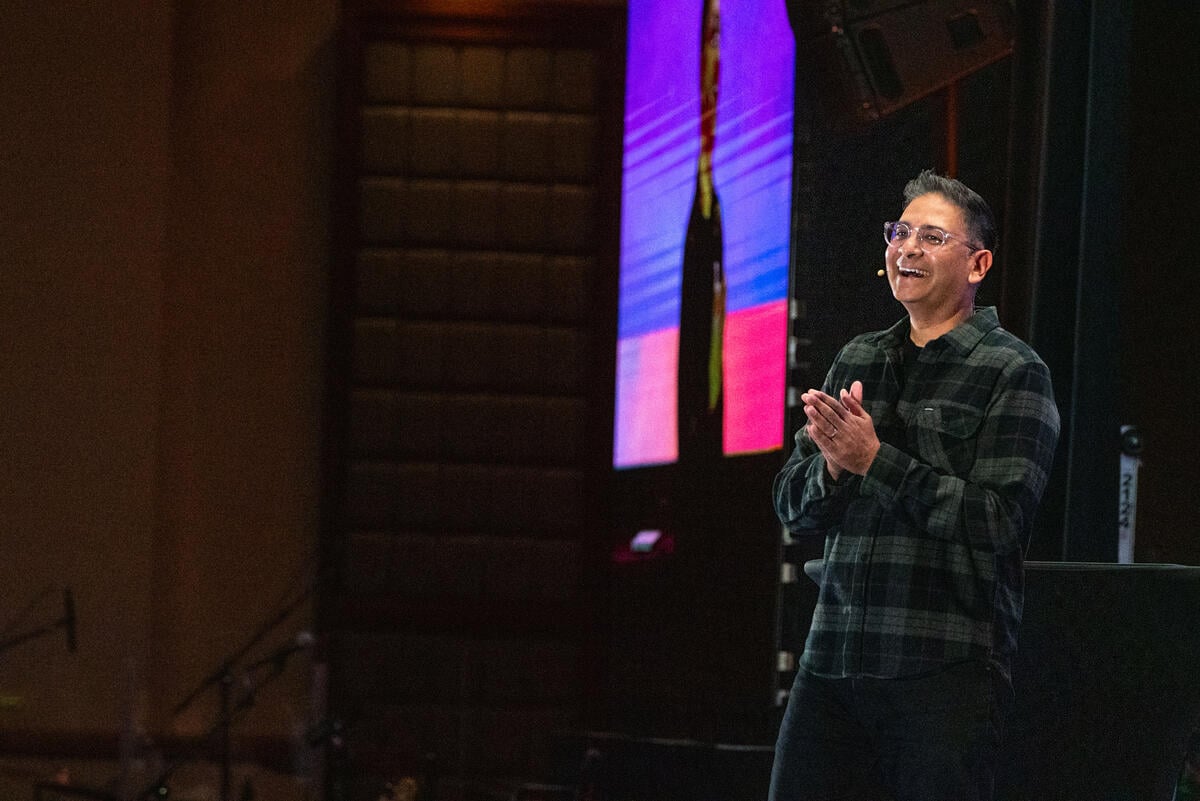
Church solutions to end extreme poverty
An anonymous writer once crafted an imaginary conversation with a friend. “Sometimes I would like to ask God why He allows poverty, suffering, and injustice when He could do something about it,” he imagined saying to a friend. The friend responded, “Well, why don’t you ask Him?”
“Because I’m afraid He would ask me the same question.”
An honest look will reveal the Church has sometimes been like that one friend who says, “Let me know how I can help!” — and then disappears faster than snickerdoodles at the school bake sale. According to a 2001 study, Christians make up 33% of the world’s population, receive 53% of the world’s annual income, and spend 98% of their wealth on themselves. Only .01% of all Christian giving is directed toward mission efforts. While this study is over 20 years old, its findings are just as striking to us today.
If generosity is an indicator of our involvement, then this data suggests that the Church is taking a back seat in kingdom work. But when the Church does show up, the results are nothing short of miraculous.
For more than 75 years, World Vision has been witnessing this firsthand. Today, local churches around the globe have become centers of transformation through faith-driven partnerships. Not because they have big budgets, significant donations, or flashy programs, but because they understand that loving their neighbors means taking action, and doing more than offering thoughts and prayers.
Churches are uniquely positioned to help end extreme poverty because they are embedded in communities all over the world. The local body of Christ is rooted, trusted, and consistent. That kind of presence can’t be bought or manufactured. It’s cultivated through years of weddings, births, baptisms, graduations, funerals, prayer meetings, potlucks, neighborhood walks, and of course weekly Sunday gatherings.
In many parts of the world, the local church is the most stable and reliable institution around. Schools may close. Clinics may run out of medicine. Governments may overlook the needy. But the church doors stay open. That consistency makes churches powerful partners in long-term efforts to alleviate poverty.
World Vision’s model leans into this strength. We listen. We learn. And we walk alongside churches already doing the work, helping equip them with training, tools, and support to amplify their impact.
From tiny villages in Malawi to megachurches in California, congregations are taking on the giants of hunger, disease, lack of education, and hopelessness. Not because they have the answers, but because they are asking the question from those wristbands of another era: What would Jesus do?
Let’s not forget that spiritual poverty often walks hand-in-hand with physical need. Churches don’t just deliver aid — they help foster hope. They carry the message that each person is made in the image of God, loved beyond measure, and not forgotten.
Stearns wrote, “If your personal faith in Christ has no positive outward expression, then your faith has a hole in it.” But the good news is that the Church can be the holy patch that mends that tear. And the better news? The more we patch, the more we resemble Christ.
This is kingdom work, no doubt about it. It’s justice with hands and feet. It’s the Church waking up, standing tall, and proclaiming to a weary world: You are not alone. We see you. And we’re coming alongside with the reminder that Jesus is here.
The power of Church generosity
Local and global giving is essential in the effort to end extreme poverty. Churches can designate funds to support global partners, adopt struggling communities, or respond to emergencies and support long-term needs through trusted organizations like World Vision. But generosity doesn’t stop with collection baskets. It means organizing food drives, supporting local shelters, and remembering that “love thy neighbor” includes both the family next door and the child in another nation. Stearns wrote in The Hole in Our Gospel,
“This gospel—the whole gospel—means much more than the personal salvation of individuals. It means a social revolution.”
To revolutionize a broken world, we have to take Sunday morning sermons into the streets. We have to take the love we preach and put it on the road — into villages, towns, deserts, and urban centers. We must offer hope in every place where hope is gasping for breath.
Ending extreme poverty is possible.
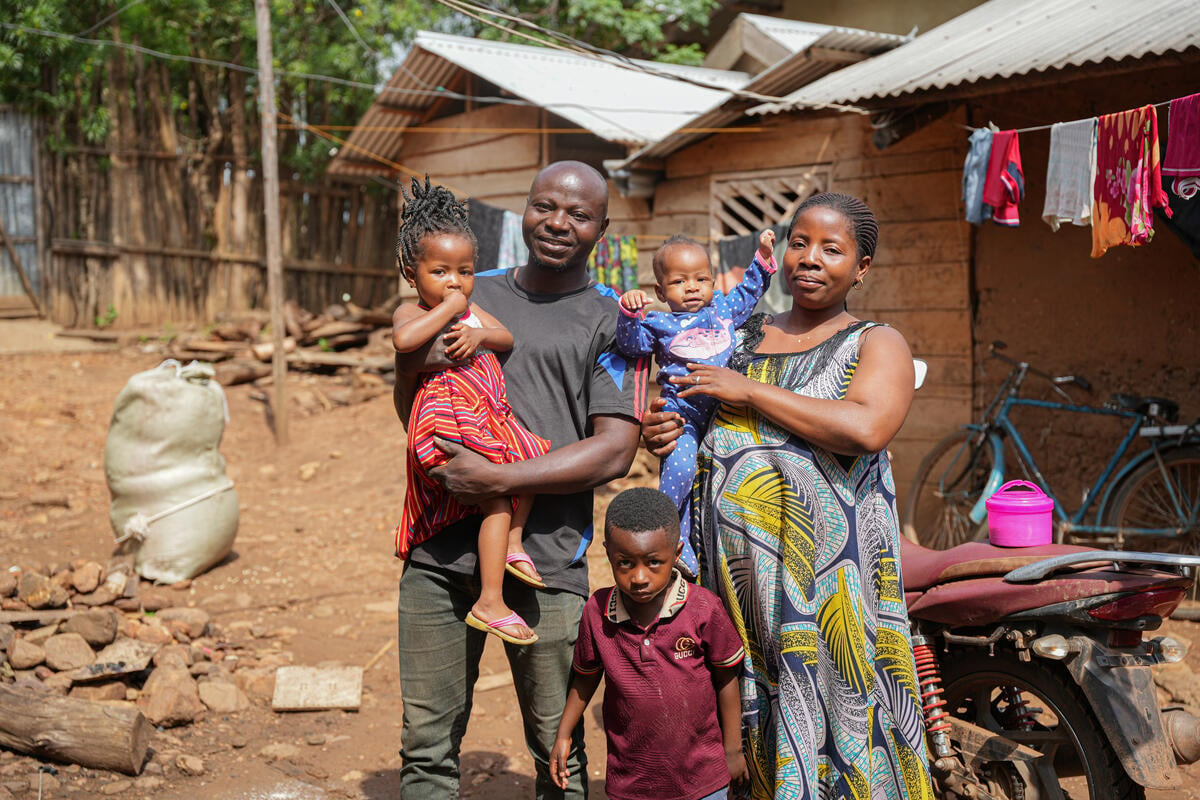
When faced with such a persistent problem, it’s easy to feel powerless. But we must remember: it is possible to end extreme poverty — maybe even in our lifetime! Recent history provides the proof. The percentage of the world’s workers living in extreme poverty recently fell by half, from 14.3% in 2010 to 7.1% in 2019. Humanitarian organizations were even working toward the goal of ending extreme poverty by 2030. Unfortunately, COVID-19 happened. In 2020, the percentage of people living in extreme poverty rose for the first time in two decades.
Rather than being disheartened, we can find motivation.
In just five years, together with partners and donors, World Vision has impacted the lives of over 200 million vulnerable children by tackling the root causes of poverty. This is compelling evidence that the mission is not only possible, but progress is happening right now.
Christian response to poverty
Extreme poverty isn’t just about money. It’s about powerlessness. It’s about being told you don’t matter. It’s about hearing “no” in every language — no food, no school, no doctor, no future.
But the Church knows a better Author. One who turns “no” into “yes” and “not yet” into “watch what I can do.”
The Church’s response to extreme poverty helps us all understand what it looks like to follow Jesus. It’s not reserved for missionaries in distant lands. It’s for every believer who’s ever uttered the prayer, “Lord, here am I. Send me.” And sometimes, the sending looks like writing a check. Sometimes it looks like sponsoring a child. And sometimes it looks like speaking up, advocating for needs to be met.
Jesus didn’t pass the poor on His way to somewhere more important. He stopped. He healed. He listened. He told stories that flipped the long-standing tables of power.
This is the model.
The Church’s response to extreme poverty must be steeped in both prayer and action. It must be as local as your own zip code and as global as God’s kingdom. It must challenge comfort and invite community. It may be inconvenient and unglamorous, but it’s always wildly beautiful.
Because here’s the thing about serving the poor: You’ll find Jesus there. In the tears. In the resilience. In the joy that makes no economic sense.
If you want to meet Christ, follow Him into the margins. If you want to be the Church, feed His sheep. Clothe His children. Defend His beloved. Not just in theory — but in sweat, in sacrifice, in solidarity.
Let’s fill the hole in our gospel. Let’s be a Church that doesn’t just believe, but becomes. Becomes the good news for those who’ve only known hard times.
Because when we respond to poverty with love, justice, and unshakable faith, we don’t just change the world, we reveal the kingdom of Jesus.
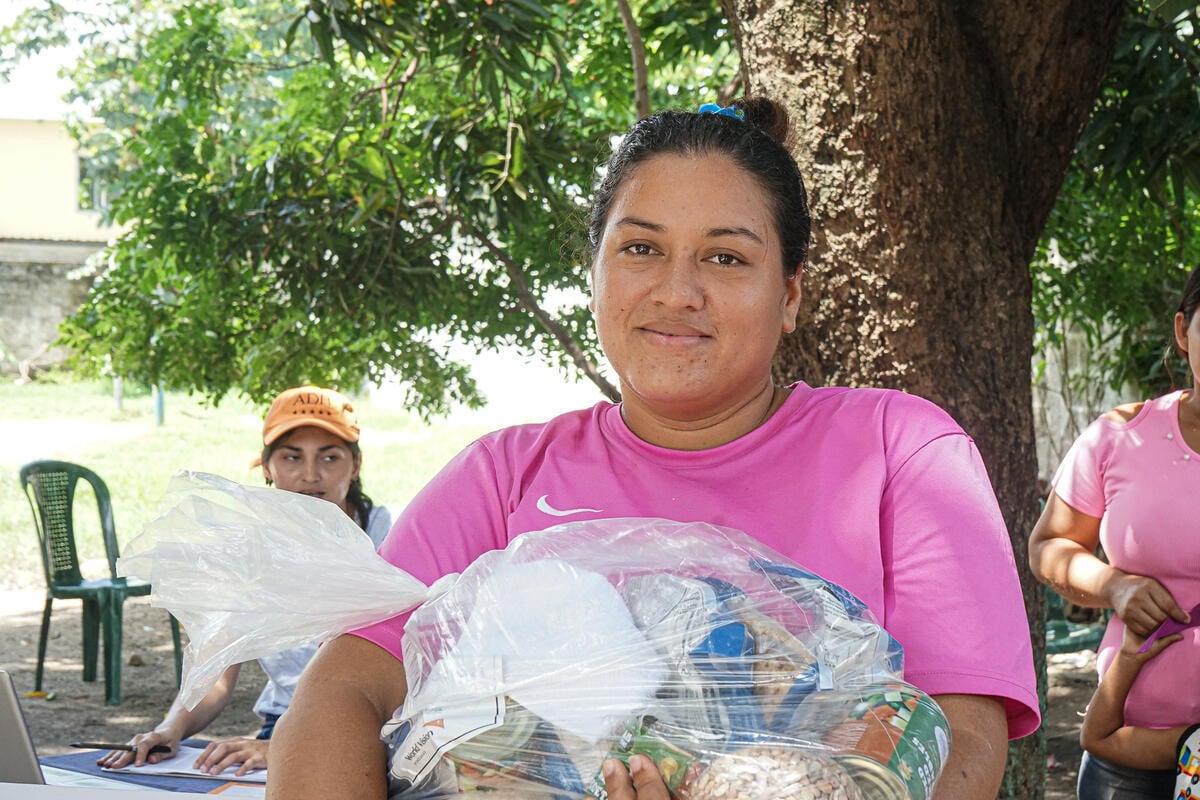
Specific ways to get involved
The work of alleviating poverty is both deeply spiritual and surprisingly practical. When churches commit to action, they ignite hope. And when that hope spreads, lives change. Here are some meaningful ways that churches can make a difference in the fight against poverty.
Emergency response
When disaster strikes, poverty digs in, and its roots in communities become that much deeper. But the church has the power to interrupt this cycle. By supporting emergency response programs, congregations extend Christ’s compassion in the most urgent moments, providing food, shelter, and safety that protect families from slipping further into hardship. When communities recover faster and stronger, children can return to school, parents can rebuild livelihoods, and hope rushes in where despair once threatened. In responding to crisis, the Church becomes a living answer to prayer — and a vital partner in breaking poverty’s grip on our world.
Partnering with a development organization like World Vision
World Vision offers congregations a variety of meaningful ways to come alongside children and families in need. One of the most personal and transformative ways is through child sponsorship. Through sponsorship church members are connected directly with a child, providing not just resources but relationships that transform lives — both there and here. But that’s only the beginning. Some churches choose to focus on hunger relief, others on education, clean water, or health initiatives. Still others prefer the broad impact of giving to the World Vision Fund, which strengthens every sector of the work and helps families lift themselves out of poverty for good. However a church chooses to partner, each gift becomes a living expression of faith — turning Sunday lessons into change in real communities, in real time.
Economic empowerment
Access to economic tools, training, and opportunities can have a huge impact on a family’s ability to provide for themselves not just today, but over time, through generations. Christians can support microfinance initiatives, vocational training programs, and savings groups that help families lift themselves out of poverty. Imagine believers helping a single mother in Rwanda start a bakery. Or enabling a farmer in Honduras to finally afford tools. This is more than what many would call charity. It’s a way of actually coming alongside people and working to equip them with the tools needed to write a different life story.
Advocacy
Advocacy may not sound as directly impactful as other solutions, but it is every bit as vital. Churches can raise their voices on behalf of those whose voices are being drowned out by injustice. That might mean hosting an advocacy Sunday, where members sign petitions or write to their elected officials about legislation that affects global poverty. It might mean educating the congregation on how policies affect access to food, healthcare, and education. When the Church speaks truth to power, it echoes the prophets of old — and makes a real difference today.
In fact, some of the greatest societal shifts in history have been sparked by a praying, persistent Church. Christians like William Wilberforce fueled the abolition of slavery, refusing to let injustice hide behind polite silence. The U.S. Civil Rights Movement moved to the rhythms of gospel hymns and sermons from pulpits that proclaimed freedom in Jesus and freedom on earth. More recently, World Vision’s work combating the HIV and AIDS crisis in Africa was driven by churches who said, “This is our issue, too.” When faith communities stood up — advocating for prevention, care, and compassion, change occurred.
Investing in education
Education has long been a cornerstone of the Church’s anti-poverty efforts. Christian schools have provided literacy and vocational skills to marginalized communities, opening pathways out of poverty. Today, Christian organizations continue to invest in schools, vocational training, and scholarships, recognizing education as a powerful tool for empowerment and self-sufficiency.
